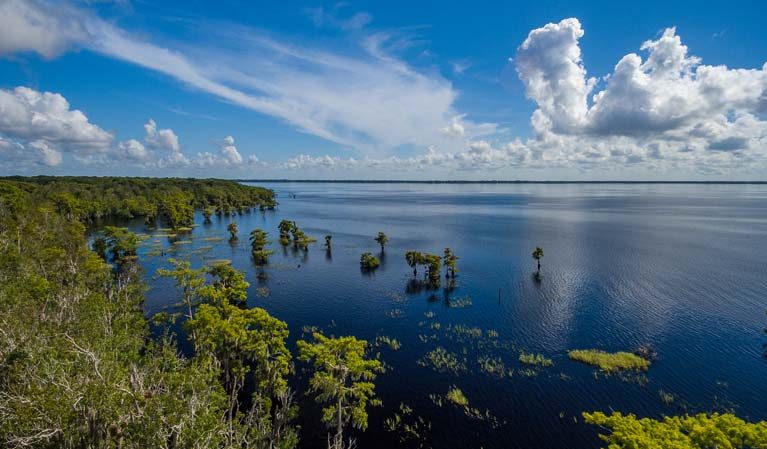
INDIAN RIVER COUNTY — Swimmers, boaters and fishers should use caution after health officials recently detected harmful blue-green algae blooms in the Blue-Cypress Lake area, authorities said. The health alert is in response to a water sample taken at the lake on May 23.
“Many types of blue-green algae can produce toxins,” Florida Department of Health officials said in a statement. “The public should exercise caution in and around the Blue Cypress Lake area.”
Blue-green algae are a type of bacteria that are common in Florida’s freshwater habitats. A bloom happens when fast-growing algae leads to the buildup of individual cells that discolor water and create floating mats that carry a foul smell, health officials said.
Some contributing factors for algae blooms include sunny days, warm water temperatures, still water conditions and a surplus of nutrients. Blooms can appear year-round, but are more constant in the summer and fall, health officials said.
Precautions for residents and visitors:
- Do not drink, swim, wade, use personal watercraft, water ski or boat in waters where there is a visible bloom.
- Wash your skin and clothing with soap and water if you have contact with algae or discolored or smelly water.
- Keep pets away from the area. Waters where there are algae blooms are not safe for animals. Pets and livestock should have a different source of water when algae blooms are present.
- Do not cook or clean dishes with water contaminated by algae blooms. Boiling the water will not eliminate the toxins.
- Eating fillets from healthy fish caught in freshwater lakes experiencing blooms is safe. Rinse fish fillets with tap or bottled water, throw out the guts and cook fish well.
- Do not eat shellfish in waters with algae blooms.
The Florida Department of Environmental Protection collects and examines algal bloom samples. Anyone who sees a bloom should report the information by contacting the department’s toll-free hotline at 855-305-3903 or by filling out the algal bloom reporting form online.






